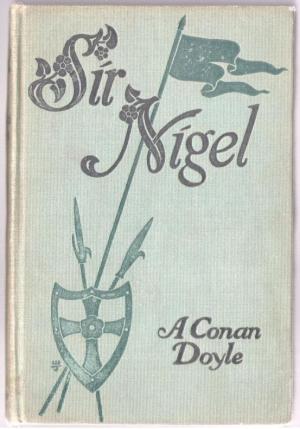I was happy to have the pleasure of reading Howard Pyle’s Otto of the Silver Hand (Pyle’s first work of fiction) and Sir Arthur Conan Doyle’s Sir Nigel during the same time. Doyle wrote Sir Nigel to be the prequel to his The White Company. The White Company held as great a readership as Doyle’s Sherlock Holmes until the Second World War, yet it still retains enough popularity to have been published continually since 1891. That book’s superiority over Sir Nigel is plain from the former’s variety of action, variety of characters, and better weaving of religion within the martial code of chivalry. Pyle’s novel, Otto of the Silver Hand, also better excels at weaving together the religious origins of chivalry into the knight’s code.
The reason behind this lies in the manner of the protagonists: Otto and Allen Edricson are both cloister bred, while Nigel Loring, whom we see as a squire in Sir Nigel, was raised within a knightly household and taught to value the manly virtues more than the decent–the loud virtues more than the quiet. It is like comparing Robert E. Lee to Nathan Bedford Forrest. Both were valiant men, but the heavily Christian upbringing of Lee better tempered his irascible nature than the more worldly education of Forrest tempered the Wizard of the Saddle’s hot blood. And so, his peers called Lee “the marble man” for his peaceable and orderly character, while Forrest struggled to control his temper almost until the very end. Even so, Nigel Loring takes about as long as Forrest to fully assimilate the gentle virtues, while Allen Edricson and Otto start from the decent and work to the manly–although, Allen is described by his friend Hordle John as already having a stalwart heart despite his meek exterior.
